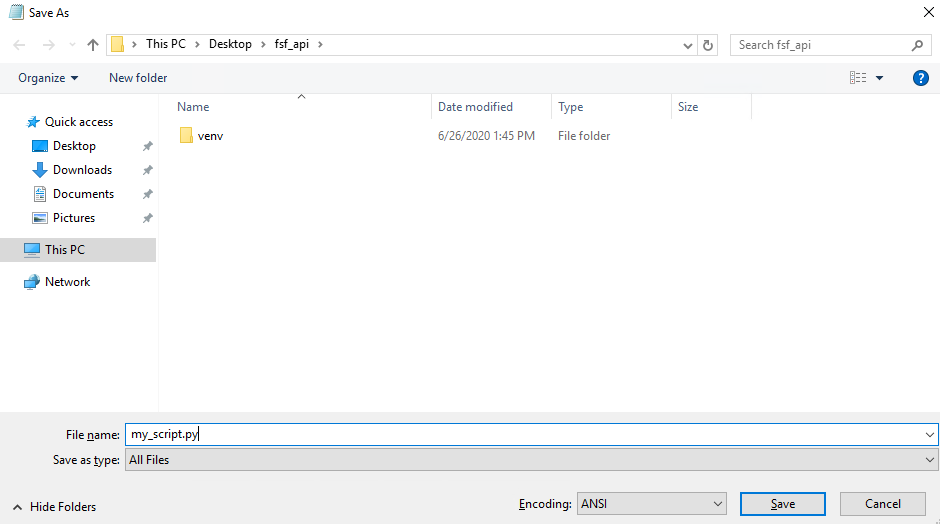This repository was archived by the owner on Jan 18, 2023. It is now read-only.
-
Notifications
You must be signed in to change notification settings - Fork 6
Running the Library Through the a Python File
Kelvin edited this page Feb 22, 2021
·
5 revisions
1. Create a new Python script (by using notepad, any other text editor, IDE, etc) and initialize a First Street Foundation API Client.
[Reminder] Keep your API key safe, and do not share it with others!
[NOTE] This method will NOT generate a CSV by default. An argument must be passed to generate a CSV.
# Contents of my_script.py
import firststreet
fs = firststreet.FirstStreet("api-key")firststreet.FirstStreet(
api_key,
connection_limit=100,
rate_limit=20000,
rate_period=1,
version=v1,
log=True
)-
api_key
string: The assigned API key to access the API. -
connection_limit
int: The max number of connections to make -
rate_limit
int: The max number of requests during the specifiedrate_period -
rate_period
int: The period of time for the limit in seconds -
version
string: The version of the API to access. Defaults to the current version. -
log
bool, Setting for whether to log info or not. Defaults to True.
NOTE: If you are using Jupyter Notebook, you must add the following to the top of the file before the client initialization above to allow the jupyter notebook and download loops to work correctly
# Setup For Notebook only
import nest_asyncio
nest_asyncio.apply()
fs = firststreet.FirstStreet("api-key")2. Call one of the methods described below in the Products section with the required arguments. See the Examples section in each product page for more examples.
fs.<product>.<product_subtype>(<search_items: list>, <lookup_type: string>, <csv: boolean>)
OR



-
Installation
-
Usage
-
Products
-
Update